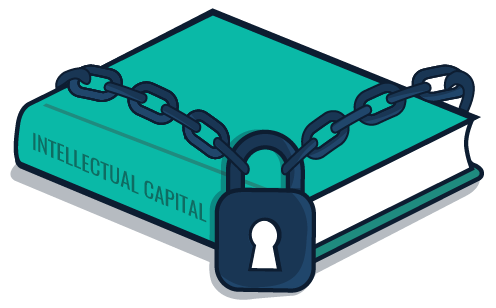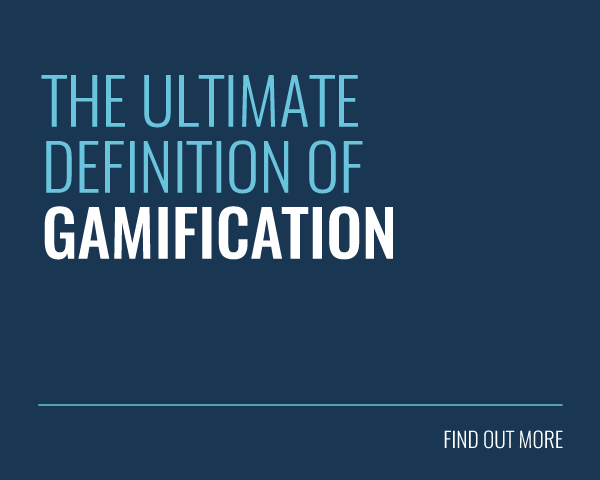You might be wondering how to gamify online learning. Not to worry, here are 15 tips from the undisputed heavyweight champions of gamified learning!
Gamification (the application of game mechanics to non-gaming scenarios) is a handy tool for improving user engagement. Many industries are turning to gamification to boost customer loyalty, increase login rates and give their brands more exposure.
The engaging power of gamification has also been recognised by the L&D world. Poor results and low engagement have plagued training departments for years. To get better results from employee training, you need to make it more exciting for the learners.
1. Break the eLearning up

Being faced with three hours’ worth of eLearning is daunting! It’s a much better idea to split the eLearning content up into discrete, bite-sized parts. You can put a quiz at the end of every section and, if they pass, award the learner a virtual badge.
2. Sort the content into levels
 Make the learning journey more fun! Hide content from learners until they ‘unlock’ the module by gathering enough points or badges. So the more they do and the further they progress, the more content is available for them to experience.
Make the learning journey more fun! Hide content from learners until they ‘unlock’ the module by gathering enough points or badges. So the more they do and the further they progress, the more content is available for them to experience.
3. Make Scores Visible
Once a learner can see how well they’re doing in each section, they can work on increasing their average score!
4. Make rewards shareable
Allow rewards like badges, certificates or achievements to be posted on social media sites and internal company intranets. If someone’s doing really well, it’s nice to be able to show off a little bit.
5. Set an End Date
Make ‘levels’ date or time sensitive, so students need to check in each day, week or month to receive new challenges. If they don’t log in within the time limit, they’ll have missed the boat – and their fellow learners will have overtaken them on the leaderboard!
6. Make it Social
 Create group assignments so that students collaborate together to accomplish projects. This’ll tap into the 90% of learning which occurs ‘informally’ – 70% occurs through observation of others and 20% through on-the-job training!
Create group assignments so that students collaborate together to accomplish projects. This’ll tap into the 90% of learning which occurs ‘informally’ – 70% occurs through observation of others and 20% through on-the-job training!
7. Make it matter
Introduce the concept of a ‘quest’ or ‘epic meaning’, where learners submit a piece of work which reinforces learning or cultural norms.
8. Sharing is Caring
This embeds learning and encourages knowledge sharing – which, as we saw in #6, is great for retaining the knowledge!
9. Delight learners
Surprise users with extra bonus rewards when they finish a particularly difficult eLearning module or pass a new challenge. They’ll appreciate the extra goodies!
10. The heat is on
Create artificial pressure by using ‘countdowns’ on quizzes. This makes users tackle challenges under time constraints – a skill which is very useful in their day-to-day work lives.
11. Punishments!
Take away badges, or rewards, if challenges are not met successfully. It might sound harsh, but if you want learners to appreciate the gamified rewards then you need to make them worthwhile; a status symbol, if you will. A pop star won’t stay popular for long if they never release any new material.
12. Try and try again
Don’t make the eLearning a one-time deal. Instead, make role-playing or branching scenarios within the eLearning infinite, or repeatable, so that if the challenge is not met successfully, the learner has to find a solution. They can’t just give up and admit defeat – the answer is there, so they have to make the effort to find it!
13. Create a story

Introduce characters that help and hinder the learner on their journey. It’ll make it more engaging and memorable.
14. Personalisation
The learner can create or select a character to ‘play’ throughout the eLearning, or – even better – play as themselves! You’ll be amazed at how enthusiastic a learner will be to save their character from the Swamp of Stupidity when they’ve created it themselves.
15. Make it competitive!
Post leaderboards showing learner performance across departments, geographies and specialisms to encourage competition and collaboration. No one wants to be at the bottom of the heap. This works particularly well with salespeople, who are naturally competitive (who’d have guessed!?).
Want to find out more about how to gamify online learning?
Grab your very own free tip sheet!









